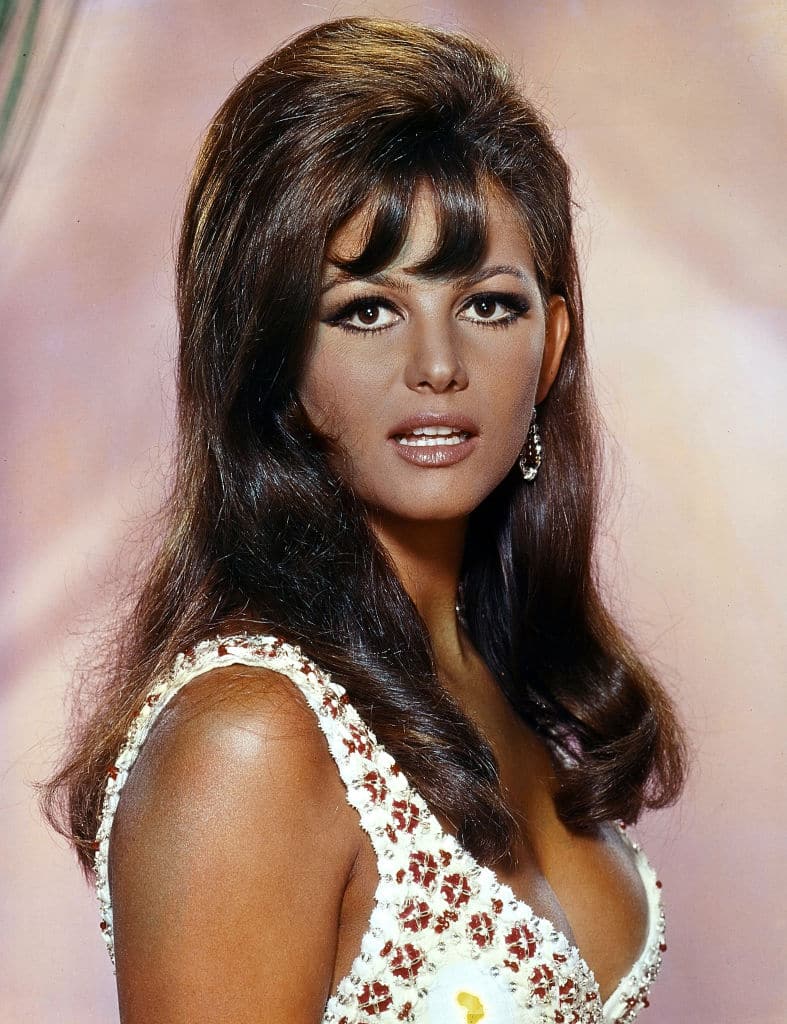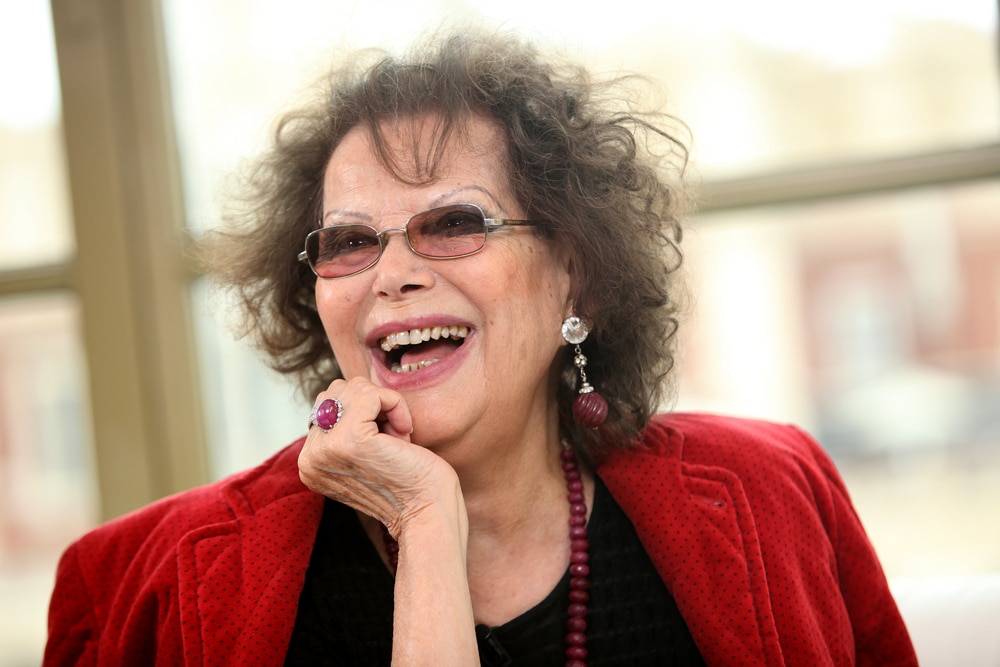In a career that has spanned over six decades, Claudia Cardinale has enchanted audiences worldwide with her stunning screen presence, emotional depth, and unwavering strength. While many remember her as the ethereal beauty of European cinema’s golden age, her journey to stardom was anything but conventional. Cardinale’s rise to becoming a cinematic icon was shaped not only by her talent and opportunities but also by profound personal trauma, resilience, and an unshakeable sense of self.
Born in Tunis, Tunisia, in 1938 to Italian parents, Claudia Cardinale had no initial aspirations of becoming an actress. In fact, she was studying to be a teacher when, at just 18, her life took an unexpected turn. While helping to organize an Italian film festival, she was unexpectedly pushed onstage and crowned “Most Beautiful Italian Girl in Tunisia.” The prize—a trip to the Venice Film Festival—opened doors she had never intended to walk through.
Producers quickly began to pursue her, eager to cast the radiant newcomer. However, behind her graceful exterior, Cardinale was harboring a heartbreaking secret: she was pregnant as a result of a violent assault by an older man. She initially turned down most offers until one producer, Franco Cristaldi, managed to entice her with promises of fame and protection. He became not only her manager but eventually her husband—though their relationship was more about control than love.
Cristaldi insisted that her pregnancy be kept hidden from the public. When her son, Patrick, was born, the narrative was that he was her younger brother. Under Cristaldi’s strict guidance, Cardinale was molded into what the industry hoped would be the Italian answer to Brigitte Bardot, yet she remained steadfast in her values, including her refusal to appear nude on screen.
Despite the personal turmoil, Cardinale’s star rose rapidly. She made her mark in *Three Strangers in Rome* in 1958, and within a few years, she was sharing the screen with legendary actors in acclaimed films. In 1963, she starred in Federico Fellini’s *8½* and Luchino Visconti’s *The Leopard*, both considered masterpieces of world cinema. Her performances, characterized by a blend of strength and vulnerability, garnered her widespread acclaim.

Cardinale then conquered Hollywood, appearing in *The Pink Panther* alongside David Niven, *Circus World* with John Wayne and Rita Hayworth, and *Once Upon a Time in the West*, where her portrayal of a prostitute against the harsh backdrop of the American frontier became one of her most celebrated roles. Unlike many of her contemporaries, Cardinale refused to conform to the Hollywood system. She prioritized substance over stardom and resisted the industry’s objectification of women.
Though often compared to Brigitte Bardot—her co-star in *The Legend of Frenchie King*—Cardinale took pride in maintaining an air of mystery and dignity on screen. “I always thought it was more erotic to leave some room for imagination,” she once remarked.
Off-screen, her life was equally complex. Her controlling relationship with Cristaldi ended in 1975, the same year she met director Pasquale Squitieri, with whom she remained until his death in 2017. They had a daughter, Claudia. Her son Patrick, whose paternity remained concealed for nearly two decades, eventually stepped into the spotlight as her true child—a moment of truth and healing for Cardinale.
In 2017, Cardinale spoke openly about the sexual assault she endured as a teenager. Rather than allowing the experience to break her, she chose to raise her child and pursue her career, even while being silenced by an industry that preferred its stars to be flawless and uncomplicated. “It was terrible,” she said, “but the most beautiful thing is that my wonderful Patrick was born from that violence.”
Now 86, Cardinale resides in France and remains in good health, despite false reports of hospitalization in recent years. In 2022, she personally dismissed the rumors, stating, “I’m next to my family, I’m in full health.”
Today, her legacy extends beyond film. As a goodwill ambassador for UNESCO, she uses her voice to advocate for women’s rights—a cause that resonates deeply with her own past.
Claudia Cardinale’s life has been marked by beauty, brilliance, and bravery. Her story serves as a reminder that behind the glamorous photos and silver screen roles are real women with stories of survival, strength, and self-discovery. Through it all, Cardinale never allowed the industry to define her; instead, she became one of its most unforgettable legends. In a career that has spanned over six decades, Claudia Cardinale has captivated audiences worldwide with her stunning screen presence, emotional depth, and unwavering strength. While many remember her as the ethereal beauty of European cinema’s golden age, her journey to stardom was anything but conventional. Cardinale’s rise to becoming a cinematic icon was shaped not only by her talent and opportunities but also by profound personal trauma, resilience, and an unshakeable sense of self.
Born in Tunis, Tunisia, in 1938 to Italian parents, Claudia Cardinale had no initial aspirations of becoming an actress. In fact, she was studying to be a teacher when, at just 18, her life took an unexpected turn. While helping to organize an Italian film festival, she was unexpectedly pushed onstage and crowned “Most Beautiful Italian Girl in Tunisia.” The prize—a trip to the Venice Film Festival—opened doors she had never intended to walk through.
Producers quickly began to pursue her, eager to cast the radiant newcomer. However, behind her graceful exterior, Cardinale was harboring a heartbreaking secret: she was pregnant as a result of a violent assault by an older man. She initially turned down most offers until one producer, Franco Cristaldi, managed to entice her with promises of fame and protection. He became not only her manager but eventually her husband—though their relationship was more about control than love.
Cristaldi insisted that her pregnancy be kept hidden from the public. When her son, Patrick, was born, the narrative was that he was her younger brother. Under Cristaldi’s strict guidance, Cardinale was molded into what the industry hoped would be the Italian answer to Brigitte Bardot, yet she remained steadfast in her values, including her refusal to appear nude on screen.
Despite the personal turmoil, Cardinale’s star rose rapidly. She made her mark in *Three Strangers in Rome* in 1958, and within a few years, she was sharing the screen with legendary actors in acclaimed films. In 1963, she starred in Federico Fellini’s *8½* and Luchino Visconti’s *The Leopard*, both considered masterpieces of world cinema. Her performances, characterized by a blend of strength and vulnerability, garnered her widespread acclaim.
Cardinale then conquered Hollywood, appearing in *The Pink Panther* alongside David Niven, *Circus World* with John Wayne and Rita Hayworth, and *Once Upon a Time in the West*, where her portrayal of a prostitute against the harsh backdrop of the American frontier became one of her most celebrated roles. Unlike many of her contemporaries, Cardinale refused to conform to the Hollywood system. She prioritized substance over stardom and resisted the industry’s objectification of women.
Though often compared to Brigitte Bardot—her co-star in *The Legend of Frenchie King*—Cardinale took pride in maintaining an air of mystery and dignity on screen. “I always thought it was more erotic to leave some room for imagination,” she once remarked.

Off-screen, her life was equally complex. Her controlling relationship with Cristaldi ended in 1975, the same year she met director Pasquale Squitieri, with whom she remained until his death in 2017. They had a daughter, Claudia. Her son Patrick, whose paternity remained concealed for nearly two decades, eventually stepped into the spotlight as her true child—a moment of truth and healing for Cardinale.
In 2017, Cardinale spoke openly about the sexual assault she endured as a teenager. Rather than allowing the experience to break her, she chose to raise her child and pursue her career, even while being silenced by an industry that preferred its stars to be flawless and uncomplicated. “It was terrible,” she said, “but the most beautiful thing is that my wonderful Patrick was born from that violence.”
Now 86, Cardinale resides in France and remains in good health, despite false reports of hospitalization in recent years. In 2022, she personally dismissed the rumors, stating, “I’m next to my family, I’m in full health.”
Today, her legacy extends beyond film. As a goodwill ambassador for UNESCO, she uses her voice to advocate for women’s rights—a cause that resonates deeply with her own past.
Claudia Cardinale’s life has been marked by beauty, brilliance, and bravery. Her story serves as a reminder that behind the glamorous photos and silver screen roles are real women with stories of survival, strength, and self-discovery. Through it all, Cardinale never allowed the industry to define her; instead, she became one of its most unforgettable legends. Her journey continues to inspire countless individuals, showcasing the power of resilience and the importance of staying true to oneself amidst adversity.




